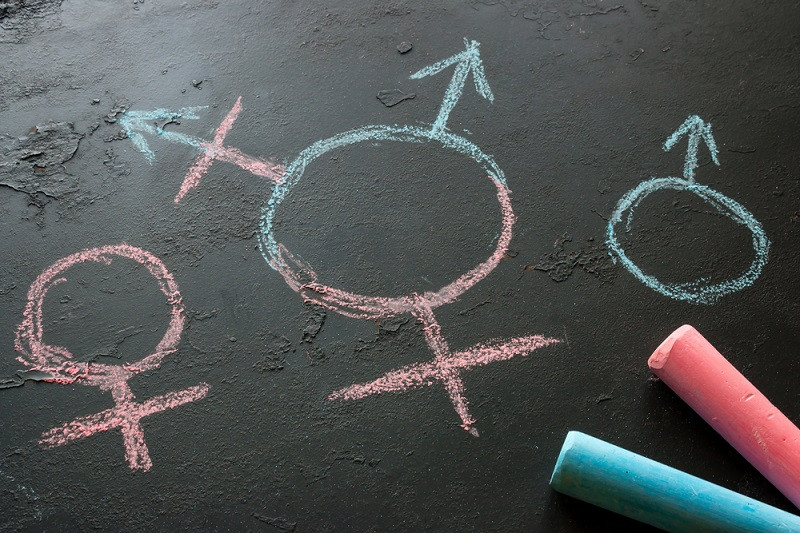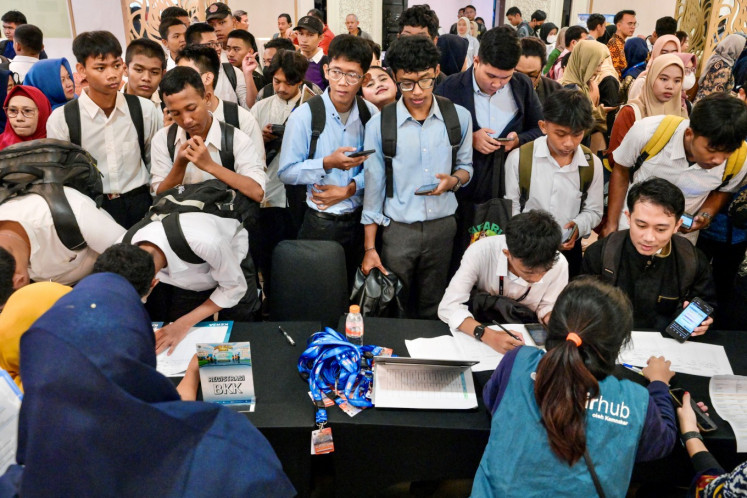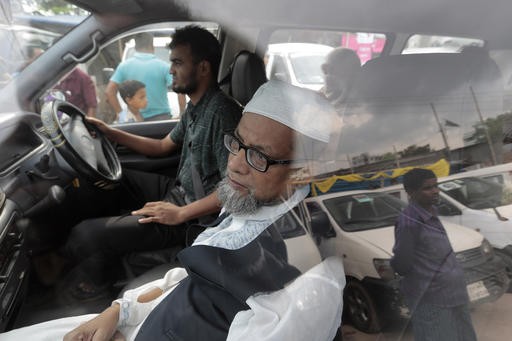Popular Reads
Top Results
Can't find what you're looking for?
View all search resultsPopular Reads
Top Results
Can't find what you're looking for?
View all search resultsAcademia’s reinforcement of hatred against transgender people
International Transgender Day of Visibility celebrates transgender people and raises awareness of discrimination faced by transgender people worldwide. It is also a celebration of their contributions to society. But what about in Indonesia?
Change text size
Gift Premium Articles
to Anyone
T
he ongoing coronavirus pandemic has hit Indonesia severely. Everyone is at risk. However, the pandemic has hit marginalized groups even worse. While some are privileged to be able to work from home to self-quarantine themselves, transgender people (especially transwomen) do not have such privilege; specifically those who work as street singers or sex workers or at beauty salons, as they need clients for daily survival. Access to basic needs like food becomes a luxury.
Therefore, using International Transgender Day of Visibility on March 31 as an opportunity, I would like to promote more acceptance so that the suffering of such marginalized people can be reduced. Hopefully by emphasizing the visibility of the community (including its struggle), we can become aware of the reality its members face. Hence, we can strengthen our solidarity and get through this hard time together, leaving no one behind.
International Transgender Day of Visibility celebrates transgender people and raises awareness of discrimination faced by transgender people worldwide. It is also a celebration of their contributions to society. But what about in Indonesia?
In terms of contributions, Dorce Gamalama, a famous and openly transgender comedian, is celebrated in Indonesia as a legend in the entertainment industry. She was invited to a dinner at the Presidential Palace with President Joko “Jokowi” Widodo in 2015. Yet, one of her shows was once cancelled without clarity in 2009.
Early in February, after a dangdut singer was arrested for substance abuse, she was ridiculed for her gender identity. The singer’s identity was revealed in the media with her male name and sex, even though she insisted she was a woman, further inviting humiliation. This is what happens in Indonesia, as in many other countries. The visibility of the trans identity worsens transgender people’s insecurity.
The issue of transgender people is very sensitive and even taboo for many. Dorce’s achievement is acknowledged by millions of people, yet her trans status is rarely discussed in a positive manner. Her positive contributions seem to be emphasized more in order to compensate for her perceived “shortcoming” of being transgender. Deeply rooted in our mind is a concept that, when someone is transgender, they need to behave very positively to compensate for their so-called “negative” trans identity.
This concept comes from a false and detrimental belief that transgender people are “damaged people”. This ingrained prejudice unsurprisingly leads many to prefer silence and avoid this uncomfortable topic, hindering the positive effect of understanding transgender people better based on facts rather than just prejudice.
Furthermore, among the academia – the intellectual group whose opinions people are supposed to trust – silence, or even the spreading of false beliefs, is prevalent. The silence and reinforcement of the rejection culture of lesbian, gay, bisexual and transgender (LGBT) individuals worsens the situation. For example, a doctoral student in neuropsychology, commenting on LGBT, wrote in 2016 that “sperm and bacteria in the rectum is the start of HIV”. Another doctoral graduate claimed, through his personal social media account, that LGBT individuals were the result of past trauma. Therefore, with his effective therapy, such individuals, including celebrity Mimi Peri, could be cured, he claimed.
In a recent discussion related to the controversial family resilience bill, a psychology lecturer said men and women should return to their God-given nature as “real” men and women. He claimed that the World Health Organization’s declassification of homosexuality as a mental disorder occurred only because there were LGBT people on its committee of experts who insisted that this change take place. He argued that, if paedophiles were on the committee, then paedophilia too would no longer be considered abnormal.
The opinions of those with higher academic qualifications are trusted by the wider society. When educated people still cannot and are reluctant to differentiate facts from their subjective hatred and when they are given the space in public to spread their hate ideology, the atmosphere for gender minorities, especially transgender people, then becomes dangerous, making it difficult to discuss, let alone celebrate, the issue.
Unlike what many academics believe, bacteria mixed with sperm cannot mutate into a virus; HIV is most commonly transmitted through sexual behavior or syringe or needle use and does not depend merely on sexual orientation or gender identity; sexual orientation and gender identity can be influenced both by nature and nurture, not a “curable” past trauma; and conversion therapy, in any form including religious, is mostly ineffective and damaging for the well-being of LGBT people. Also, the WHO declassification of LGBT identities as mental disorders was because of the WHO’s findings that they not inherently problematic; rather, social dysfunction among the LGBT community occurs largely because of stigma, prejudice and discrimination – this has no connection to whether WHO members were sexual or gender minorities themselves.
As long as we cannot acknowledge these facts to promote a more favorable social situation, transgender people will continue to feel hesitant and shy away from the mainstream, therefore hindering their positive contributions to society and limiting their social mobility. Without a culture of acceptance, there is little chance that we celebrate the visibility of transgender people loudly and proudly.
***
Program coordinator for an international NGO. She is a trans advocate with national and international experience and a former Chevening scholar.










